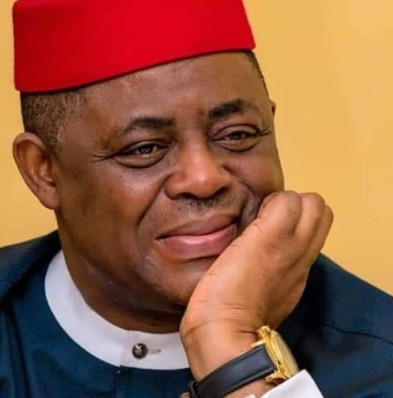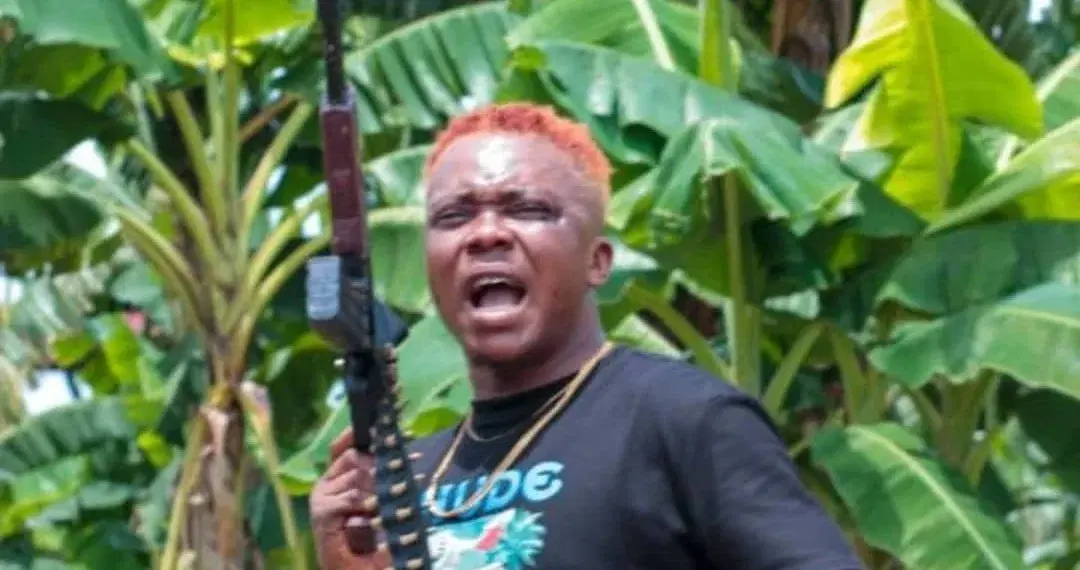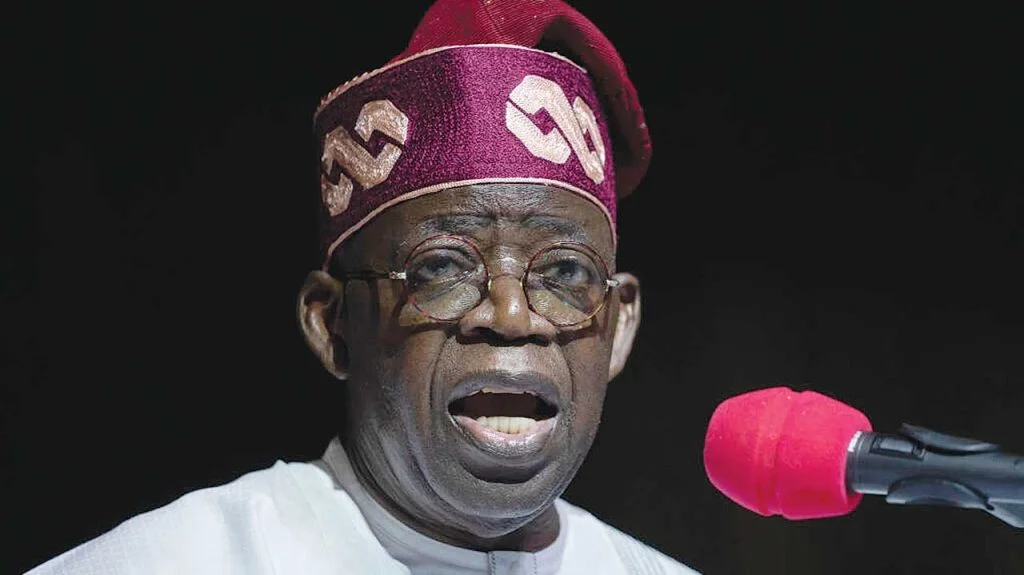Billionaire kidnapper: Untold story of Henry Odenigbo’s exploits as Nollywood actor, producer
Being a kidnapper was something that never crossed our minds – Rivers AGN Chairman
•Odenigbo featured only in his own movies, never harassed or owned actors
•I’m scared, says Kelvin Ikeduba who acted in one of his movies ‘Born in the Ghetto’
Fear, shock, and disbelief are the words to describe the reactions of many filmmakers and movie stars in Rivers State where the slain billionaire kidnapper, Henry Odenigbo, held sway as an actor and film producer before he met his Waterloo on July 4 in Lagos.
Ode, as he was popularly called, was the ring leader of a gang of nine kidnappers who targeted wealthy individuals in Lagos. They were killed after a shootout with the police at Ladipo, Mushin area of Lagos.
While he was alive, the late kidnapper who was seen as one of the biggest financiers of movie productions in Rivers, was the owner of Port-Harcourt-based Aso-Rich Production.
But unknown to movie makers in the state, Ode was a kidnap kingpin who was using the production outfit as a camouflage to carry out his nefarious activities.
Fortunately, actors were not his main target.
Narrating how the late billionaire kidnapper, who hailed from Imo State came to be known as an actor and film producer, the Chairman of Actors Guild of Nigeria,AGN, Rivers State chapter, Dr. Ken Osunwa, in a chat with Vanguard, said the late Ode was never close to anybody in the industry, adding that he only featured in his own-sponsored movies.
According to him, the late kidnapper was never a member of AGN, Rivers State, nor a member of Association of Movie Producers, AMP, Rivers State chapter.
Speaking further, Osunwa, who noted that Odenigbo never attended any of their meetings or events, said: “He hailed from Imo State and came to set up a movie production outfit in PH. I’ve already done a disclaimer when the news got to me and people were talking about him as an actor.
“Yes, he was acting in his own-sponsored movies and not practising in Nollywood, Rivers State, in the sense that he never featured in other people’s productions.
“To the best of my knowledge, Ode never had an issue with other practitioners in the state. I was never called to settle issues with him and others.’’
He, however, acknowledged the fact that the late billionaire kidnapper never owed any actor, director or producers who worked for him.
“He was bringing different actors, producers and directors to work for him and at the end of it, he paid off everyone.
“He invested in the Nollywood industry like any other investor. Nobody knew his source of wealth and when I received the news of his killing by the police in Lagos, I was very surprised. I thank God that all our actors who were working with him are safe and fine. Nobody was missing and from the report from his production, he was not owing anybody.”
Besides producing movies, the late Henry Odenigbo also had a Film Academy, called Ason Rich Movie Academy, where he trained cameramen, scriptwriters, actors, producers and directors, sound mixers, make-up artists, and production managers, among others.
Before his death, Ode was promoting a one-month intensive training opportunity for youths on his Instagram page, which was supposed to kick off on Monday, August 5, and run till August 31, in Rivers. But that dream is gone with his exit.
Recounting how Ode recently completed his last production before his exit, Osunwa said he (Henry Odenigbo) as a kidnapper, was something that never crossed their minds in Rivers State, adding ‘’This is because he was nice to the people that worked for him.”
Meanwhile, as a way of stopping a recurrence of the ugly incident in future, Osunwa said his group had started profiling every production house in Rivers State to know their identities as well and get acquainted with them, to monitor closely whatever they were doing.
“We have also started sensitizing our members on how to identify fake production houses in the state. Like in every sector of our society, there are different kinds of human beings operating with a different mindset. We must fight them to avoid ruining our sector,” Osunwa added.
One of the popular actors, Kelvin Ikeduba, who featured in one of the late kidnapper’s movies, “Born in the Ghetto” which was released early last month, said he was scared when he heard the news of Odenigbo’s death.
He was thankful that nothing happened to him while on the set of the deceased’s movie.
The actor said: “I only featured in one of his movies, ‘Born in the Ghetto.’ They would have killed them before now. I was scared. I went to work in PH, what if there was no job and they came up with a plan? Who knows!
‘’I am very happy with the news of their death. For me, it’s a big testimony. Do you know what it means when someone comes every day to pick you up in the hotel without you knowing what they are doing for a living?’’
He added that the director, Ifeanyi Akanaga, invited him to be part of the production.
However, disassociating Nollywood from the slain kidnapper, the President of the Directors Guild of Nigeria, DGN, Dr Victor Okhai, said what happened was a call for ‘a united Nollywood’, where they would be privileged to know who is who in the industry.
He argued that while bad eggs were also found in other sectors, the slain kidnapper was never a member of any guild in Nollywood.
Similarly, the President of the Association of Movie Practitioners, AMPRAC, Ifeanyi Azodo, said checks on AMPRAC’s database showed that the late kidnapper was never a member of the association, adding that people of questionable character were never admitted into the association
In a disclaimer, Osunwa dissociated the AGN from the filmmaker, Odenigbo alongside three other persons who claimed to be film practitioners.
The guild, in a statement, said the three persons who died in the shootout with the police at Ladipo were not their members.
The statement read: “The Rivers State chapter of the Actors Guild of Nigeria at this moment, disclaims any affiliation with the individuals who tragically lost their lives in a recent kidnap incident in Lagos. Specifically, Prince Henry Asonna (Executive Producer of Aso Rich), Angel Emanuzo (Associate Producer), Chris Ahaneku (Logistics Manager-Aso Rich), and Jerry Eze (Camera Assistant) were not members of our guild. They were not part of our organization.
“They have never been associated with our guild events and are not on our register. They were not affiliated with us, to the best of my knowledge, and we condemn any false associations and news making the rounds that AGN members from Rivers State were involved in the kidnapping.”
Veteran actor, Kanayo O. Kanayo, also cautioned the public on his Instagram page against referring to the slain kidnapper as a movie producer.
In the same vein, AGN’s Financial Secretary, Emeka Duru, frowned on associating the slain kidnappers with Nollywood, saying “Because they made a movie is not doing justice to the industry.”
Meanwhile, in 2024 alone, Odenigbo’s outfit, Ason-Rich Movie Production, produced over ten films, including ‘Born in the Ghetto’, ‘Love At The Pool’, ‘My Half’, ‘Little Top Up’, ‘Regards for Love’, “Wild Love”, ‘Clue Girl’, ‘Blind Blood’, ‘To Forgive’, “Sharon’s Fate”, which featured Yul Edochie, and ‘Bethlehem.’
In 2022, he produced such movies as “Royal Ties” among others.
The late kidnapper worked with famous actors, such as Yul Edochie, Kelvin Ikeduba, and Eve Esin. But checks also revealed that he mostly worked with fast-rising actors or relatively unknown faces in the industry.
As an actor who was always posting all his movie jackets on Instagram, the late kidnapper portrayed bad-boy roles and wielded guns in movies, as seen in one of his most recent roles in “Blind Blood” as posted on his Instagram page on April 26. He was also honoured on March 16, 2024, when organizers of Nollywood Indigenous Filmmakers of Nigeria, NIFMON, awarded him the ‘Best Filmmaker in Port Harcourt’.
Weeks later, on March 31, E-flex named him Nolly TV’s Best Grassroot Filmmaker for 2024/2025.
By By Benjamin Njoku
@VANGUARD


 Business6 months ago
Business6 months ago
 Business6 months ago
Business6 months ago
 celebrity radar - gossips6 months ago
celebrity radar - gossips6 months ago
 celebrity radar - gossips6 months ago
celebrity radar - gossips6 months ago











